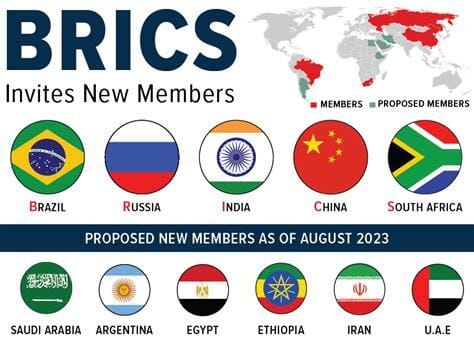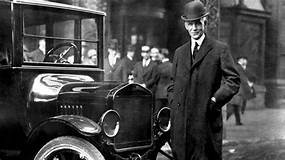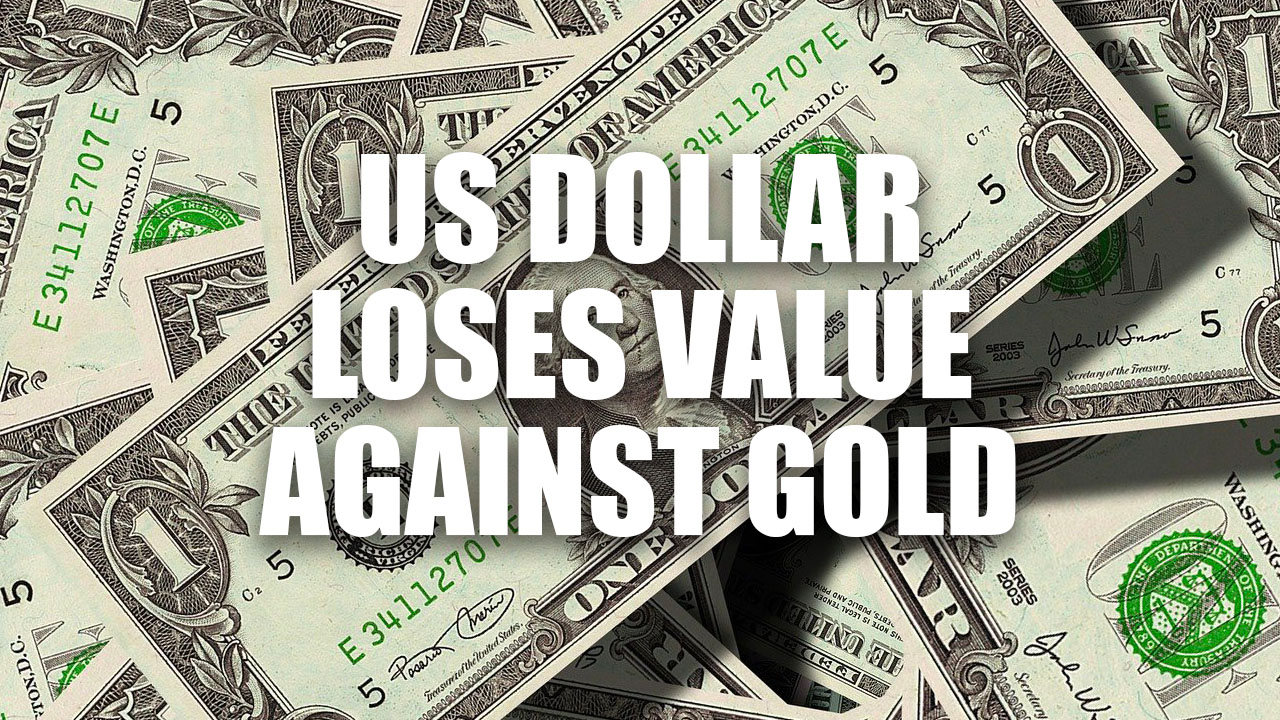- Retirement Examined
- Posts
- Retirement Examined
Retirement Examined
5-Minutes of Breakthrough Secrets: Happy, Fulfilling Retirement

The weekly email that keeps you up to date on exciting Retirement topics in an enjoyable, entertaining way for free.
The Resurgence of the Gold Standard
by Eric Seyboldt

As we stand on the brink of profound economic change in 2024, the thought of a return to a gold-based monetary system no longer seems like a distant memory but a possible solution to today's financial instability. While many financial experts still scoff at the idea, dismissing it as a relic of the past, a growing number of nations are quietly reconsidering the merits of gold. Could it be that, in this turbulent moment, the most traditional of financial systems offers the stability we’ve long been seeking?
The gold standard is often dismissed by modern economists as if the system that anchored the U.S. economy for 180 years had never worked. Yet, history tells a different story. For nearly two centuries, with gold underpinning the dollar, the U.S. enjoyed unparalleled economic growth. Inflation was not a concern, as the value of the dollar was tethered to a stable, tangible asset. Those were the years of long-term prosperity, a time when trust in our financial system was rock solid. Since severing the dollar’s link to gold in the early 1970s, the nation’s average growth rates have slumped by nearly a third. If we had maintained our earlier trajectory, median household income today could be $40,000 higher.
Yet, despite these facts, mention of the gold standard invites scorn from much of the financial world. The system, they say, is outdated. But events have a curious way of upending entrenched beliefs, forcing once-dismissed ideas back into the spotlight. And right now, all the signs are pointing toward gold.
In recent years, central banks across the globe—China, India, Russia, and even smaller nations like Poland—have been buying gold at record levels. Why? Because they see what many refuse to acknowledge: growing doubts about the long-term strength of the U.S. dollar. This unease is more than just a reflection of America’s perceived decline on the global stage—it’s a symptom of a deeper shift in global economic dynamics.
Cryptocurrencies, too, have surged in popularity, a digital cry for help in the face of volatile fiat currencies. But they’ve failed to provide the one thing that a currency must have—stability. As much as innovators want to see Bitcoin or other digital assets become the new global standard, their volatility makes them unsuitable for real-world commerce. A handful of cryptocurrencies tethered to gold have surfaced, but none have yet gained widespread traction. Still, in the face of governments faltering in their monetary policies, that too could change.
Perhaps the most glaring sign of a financial system on the brink of transformation is the sheer amount of global debt. Today, the world’s total debt surpasses $300 trillion—three times the global GDP. The weight of this debt is unsustainable, and when a crisis inevitably comes, the need for a more secure, grounded monetary system will become undeniable.
Then there’s the geopolitical shift with the BRICS nations—Brazil, Russia, India, China, and South Africa—gaining influence. These countries, once underestimated on the world stage, are moving toward alternative monetary arrangements. India, for instance, recently launched gold-backed government bonds, a move that could open doors to a new era of investment. Even Zimbabwe, with its infamous history of hyperinflation, has introduced a currency tied to gold. While skepticism about its success is warranted, the message is clear: the world is rethinking its reliance on fiat currencies, and gold is emerging as a serious contender.
As global debt balloons and the cracks in fiat currencies deepen, it’s clear that the world is inching toward a financial reckoning. The gold standard, once dismissed as a relic of history, may prove to be the stable force the modern economy needs. The past often holds the key to the future, and as more nations hedge their bets on gold, the door to a more secure, balanced global economy opens. The return to gold is no longer a far-off fantasy—it’s becoming a plausible reality. What was once seen as outdated may yet become the foundation of tomorrow’s financial system. The signs of change are everywhere; the question is, will you act before it’s too late?
Reach out to us for a complimentary, 10-minute consultation call. Let's explore together how we can help you protect your assets, ensuring your golden years are as fulfilling and worry-free as you’ve always imagined. Give us a call today (614-943-2265) to schedule your consultation. Let's make your retirement dreams a reality!
What do Nvidia and Amazon have in common?

This is a paid advertisement for Miso Robotics’ Regulation A offering. Please read the offering circular at invest.misorobotics.com.
Well, other than trillion-dollar market caps. Both Nvidia and Amazon chose to collaborate with Miso. Miso’s the leader in AI-powered kitchen robots. That’s why Nvidia offered Miso its premier AI vision tech, and Amazon handpicked Miso to partner and use its RoboMaker simulation environment. Now, Miso launched their first commercial AI-powered robot, and it sold out in seven days. On the back of that success, they’re focused on scaling to 170+ US fast food brands in need.

A Retiree’s Critical Advice Every Pre-Retiree Must Hear
Client: Eric, I've been hearing from my friends that their retirement hasn't been what they expected. I have a few years to go, but I'm growing concerned. What crucial advice would someone who's been retired for a few years offer me?
Eric: The advice I’m about to share is not what you’re expecting. This comes from someone who’s been retired for three years—a person who had a flawless financial strategy yet faced a surprising reality once retirement began.
The biggest mistake,’ this retiree would tell you, ‘is thinking that your financial freedom is all that matters. But the truth is, the real challenge is finding purpose in your life beyond work. is finding a purpose beyond your career. Personally, I spent my first year feeling unsettled, assuming that days of rest and relaxation would feel fulfilling. They didn't. What saved me was rediscovering an old passion.
This retiree was once a high-powered executive, used to working long hours, making critical decisions, and feeling indispensable. But retirement came with an unsettling sense of irrelevance—an absence of structure that felt suffocating. His solution? Mentorship. He started volunteering at a local business incubator, helping young entrepreneurs navigate the turbulent world of start-ups.
‘Initially, I thought it was just a small distraction,’ he would say, ‘but I quickly realized it restored my lost sense of purpose. The excitement of imparting my knowledge and the satisfaction of seeing these ventures grow—it was almost as fulfilling as my career but without the pressure. It wasn’t about the money; it was about mattering again.’
This retiree would tell you: ‘I wish I had planned for this earlier. It wasn’t until I found my passion for mentorship that I understood the need for a purpose-driven retirement. Without something to fill your days with meaning, financial freedom alone can feel hollow.’
Another essential point? Relationships will change. He'd caution you: ‘Your work significantly defines your social network, something you realize only once you step away from the game. Establishing connections outside your job, as I did within the business community, is vital.’
Finally, he would say, ‘Retirement can be isolating if you don’t prepare. Don’t think time will naturally fill itself. You need to actively create meaning in your life—whether that’s through hobbies, volunteering, or mentoring others.’
So, the most valuable advice from those who have lived it? Retirement isn’t just about money. It’s about purpose. Financial security is just half of the equation. The other half is finding what will keep you engaged, connected, and fulfilled.
The message is clear: Retirement isn’t merely ending a career; it’s beginning a new chapter. And this chapter needs more than financial protection—it requires purpose. Whether by giving back through mentoring, volunteering, or rekindling a lost passion, thriving retirees understand: that a life with meaning never retires. Plan not only for your financial future but also your emotional and psychological well-being, or face feeling adrift during your golden years.
Contact us for a free, brief 10-minute consultation. Together, we can discuss ways to safeguard your wealth and ensure your retirement years are as enjoyable and stress-free as you've envisioned. To arrange your consultation, call us today (614-943-2265). We're here to help turn your retirement aspirations into reality.

Fixed annuities can be an essential component of a well-rounded retirement strategy, offering security, predictability, and efficiency in financial planning.
Here are current fixed annuity rates and their durations from Top A-rated carriers (subject to change at any time, not FDIC insured):
The First Fed Decrease of .50% Is Here! Don’t Wait To Lock In These Fixed Annuity Rates Today Since They’re Starting to Fall! |
3-year: 4.85% (under $100k Deposited) |
3-year: 5.0% (over $100k Deposited) |
5-year: 5.05% (under $100k Deposited) |
5-year: 5.35% (over $100k Deposited) |
Please feel free to call Eric at 614-943-2265 if you’d like to ask any questions or request information on these fixed annuities or other retirement topics that are on your mind.

“It is well that the people of the nation do not understand our banking and monetary system, for if they did, I believe there would be a revolution before tomorrow morning.”

Henry Ford
REAL ASSETS, Invest Like the Ultra-Wealthy

Have You Considered Adding ‘Real Assets’ like Gold or Bourbon to Your Investment Portfolio?
Given the current economic uncertainties, many wise investors are opting for physical assets to protect their retirement savings. Tangible investments such as gold and even bourbon barrels are growing in popularity. These Real Assets serve as a robust defense against the consequences of excessive money printing and rising prices. They also provide excellent diversification opportunities during periods of economic stability.
Historically, physical assets have consistently outperformed other types of investments during economic downturns and market instability. They offer reliable protection against potential financial upheavals. Including tangible assets in your investment strategy can be both wise and rewarding.
Considering today's economic volatility, investing in physical assets could be a prudent way to maintain the resilience of your financial plans. Would you like to explore how these tangible investments might enhance your portfolio?
Allocating funds into the asset class known as “Real Assets” may be a strategy that you should consider.
Ask us how to Rollover a portion of Your IRA or 401k To A BOURBON IRA (www.bourbon.fund/how-it-works/) or a GOLD IRA (see link below) and:
Safeguard your assets from the collapsing dollar
Incorporate the ‘REAL ASSET’ class into your portfolio like the ultra-wealthy
Hedge against the current high-inflation conditions
Protect your retirement assets against economic crises
Just get in touch. We make it easier than ever.
CONNECT WITH US

Eric Seyboldt, MBA
Feedback or Questions?
You’re invited to get in touch with us if you’d like to find out how the Novus Financial Group can help you on your journey to a happy, fulfilling life in Retirement.
Office: 614-943-2265
Feel Free To Forward Retirement Examined To A Friend and Have Them Subscribe By Clicking The Button Below:
Reach out if you’d like to advertise your business on Retirement Examined or would like to be a sponsor.
Investment advisory services are offered by duly registered individuals on behalf of CreativeOne Wealth, LLC a Registered Investment Adviser. CreativeOne Wealth, LLC and Eric Seyboldt are unaffiliated entities.
The content we provide here isn’t financial advice and cannot be taken as such. Please speak to your financial advisor before making any investment decision. Also, note that every investment comes with its risks and drawbacks. Lastly, we would like to remind you that past results cannot guarantee future returns.
This website contains one affiliate link. When you click on the link and make a purchase, we may receive a commission at no additional cost to you. We only promote companies that we have personally used or researched and believe will add value to our readers

